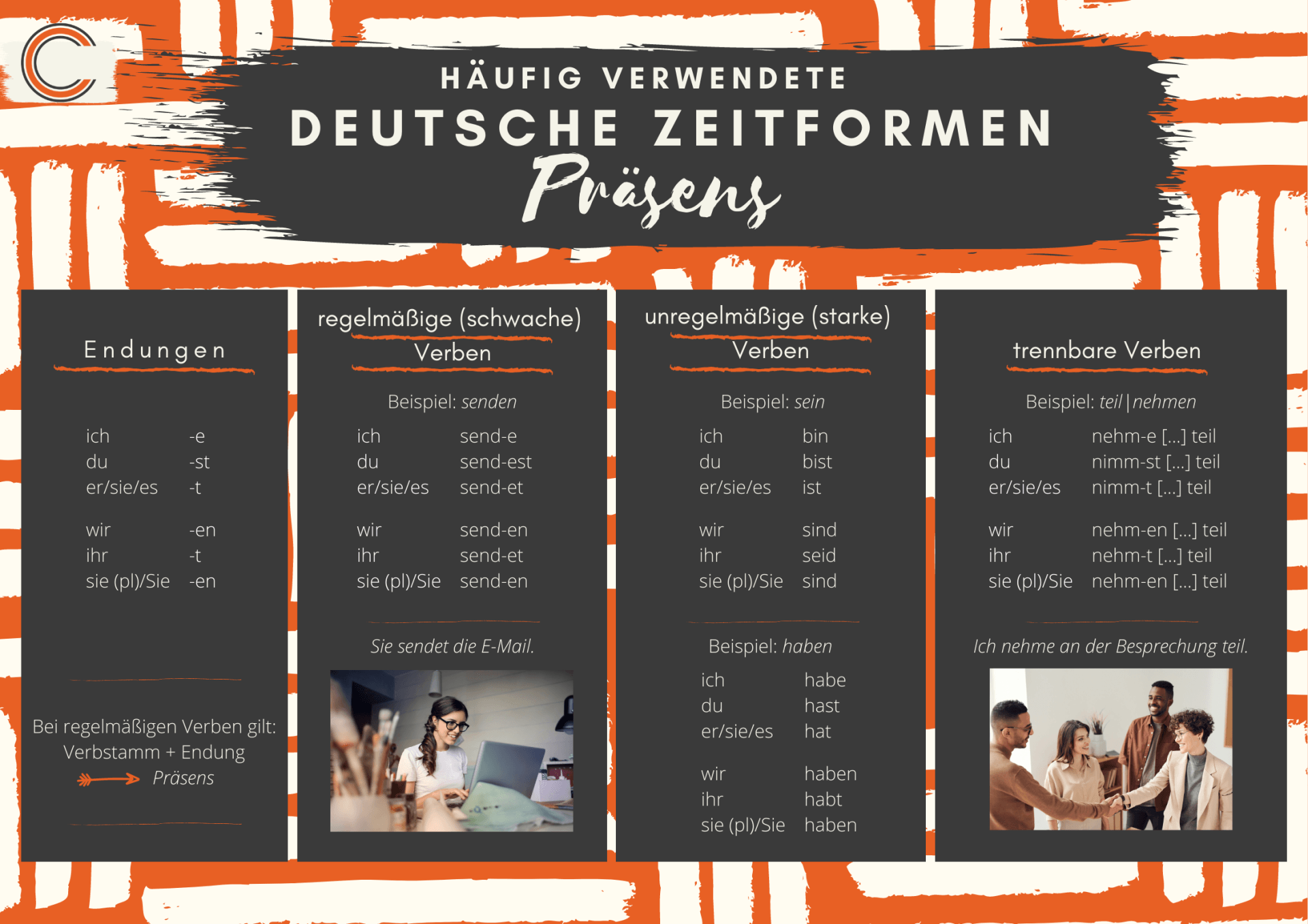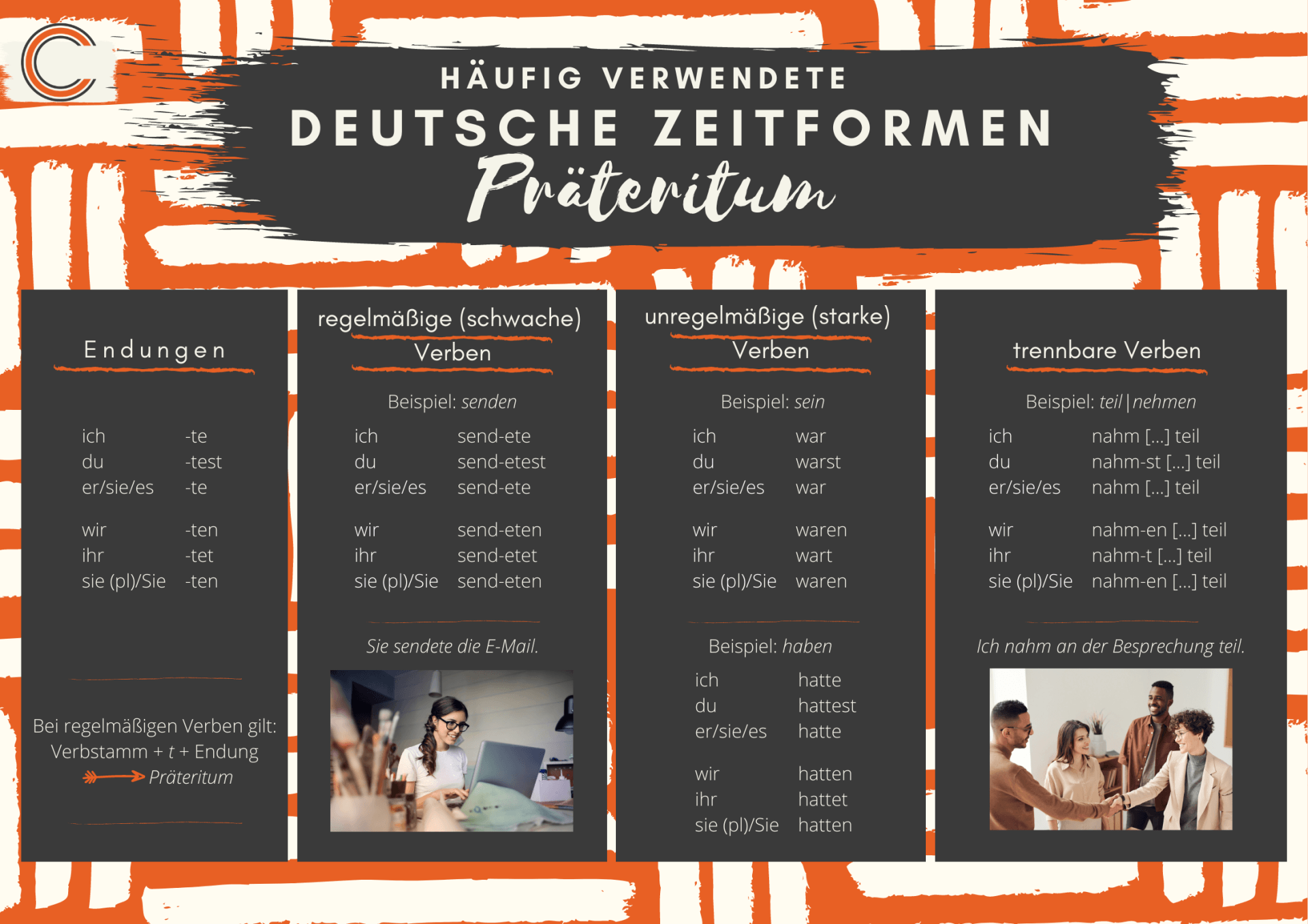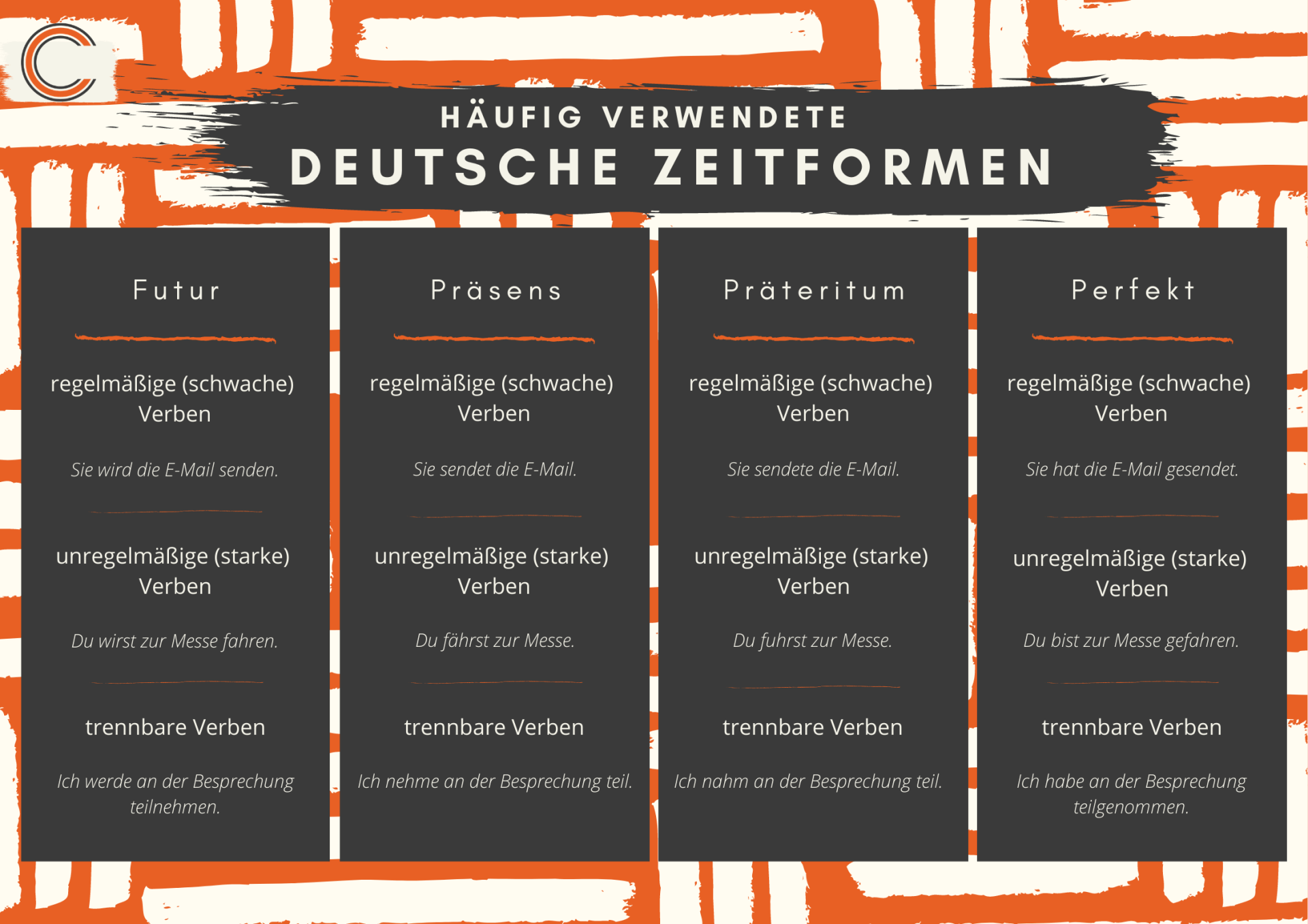Common German Tenses
Are you unsure when to use Perfekt vs Präteritum? Do you feel like there should be more Simple Future tenses in German? Follow CCC`s guide to common German tenses.
First things first. The German equivalent to Present Simple is called Präsens. We use this tense to speak about
- facts
- general truths
- repetitive actions
- actions in the present or future
- duration of actions - !German has no progressive/continuous tenses!
You see,
Present Simple and
Präsens share many characteristics. The most striking difference is that the German language lacks progressive/continuous tenses, which is why you take
Präsens to translate sentences from
Present Progressive/Continuous to German.

- to describe completed actions in the past
- to describe facts and states in the past
- most often to express past in written communication
Perfekt, on the other hand, expresses
- present perfect - the completed present so to say
- actions completed just now or a little while ago
Also, it is mostly used in spoken communication when referring to/speaking about past events (except for haben/sein, which are used in Präteritum).
The last tense we want to show you today is Futur, also called Futur I. This tense is comparable to the will-future and going-to-future in English – all in one. It is used to
- announce or forecast something
- show intentions, assumptions or expectations
- promise something
- ask for/demand/order something
Lastly, we have summarised these four common German tenses in the overview below.
Feel free to refer back to this when participating in a language course or when doing homework.



